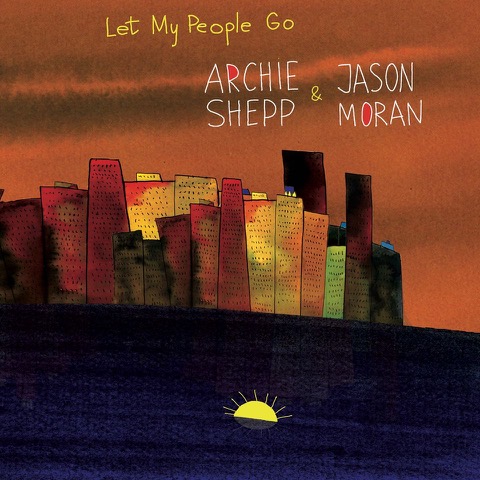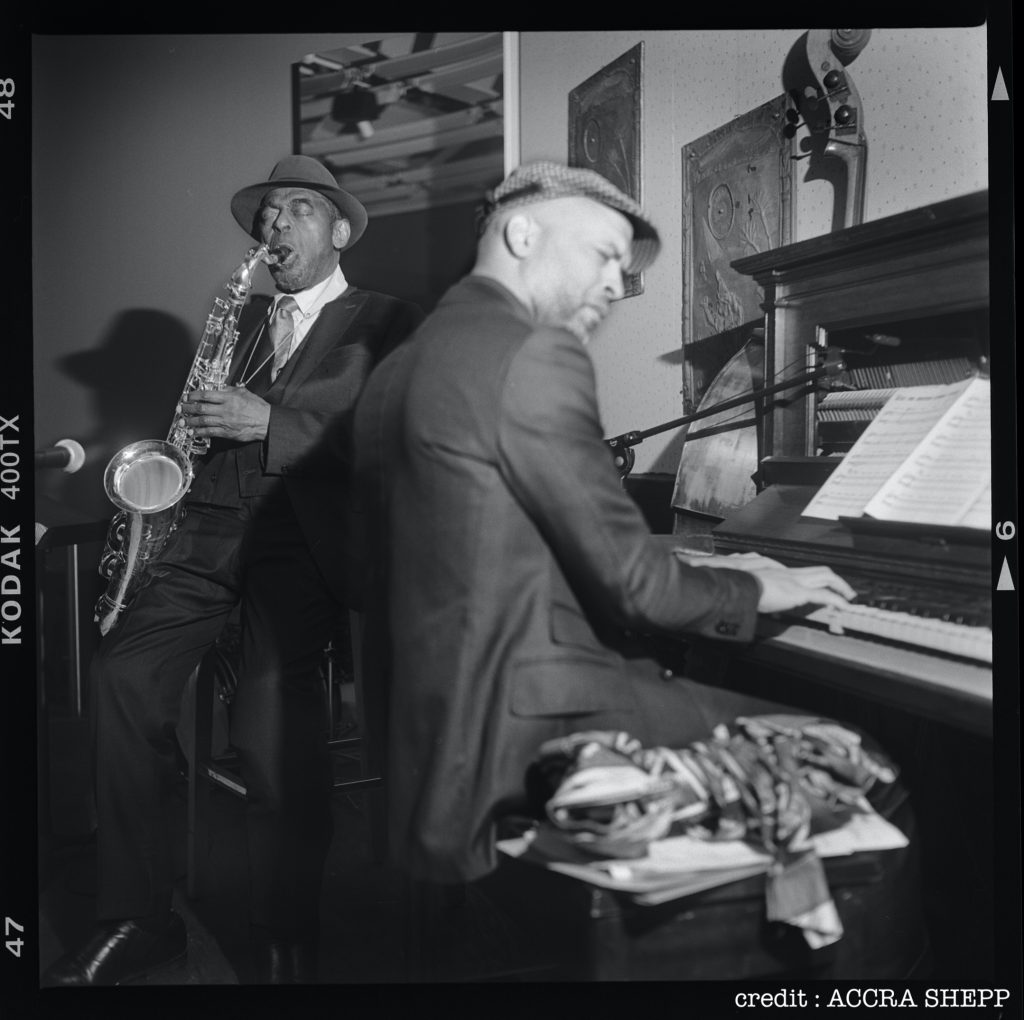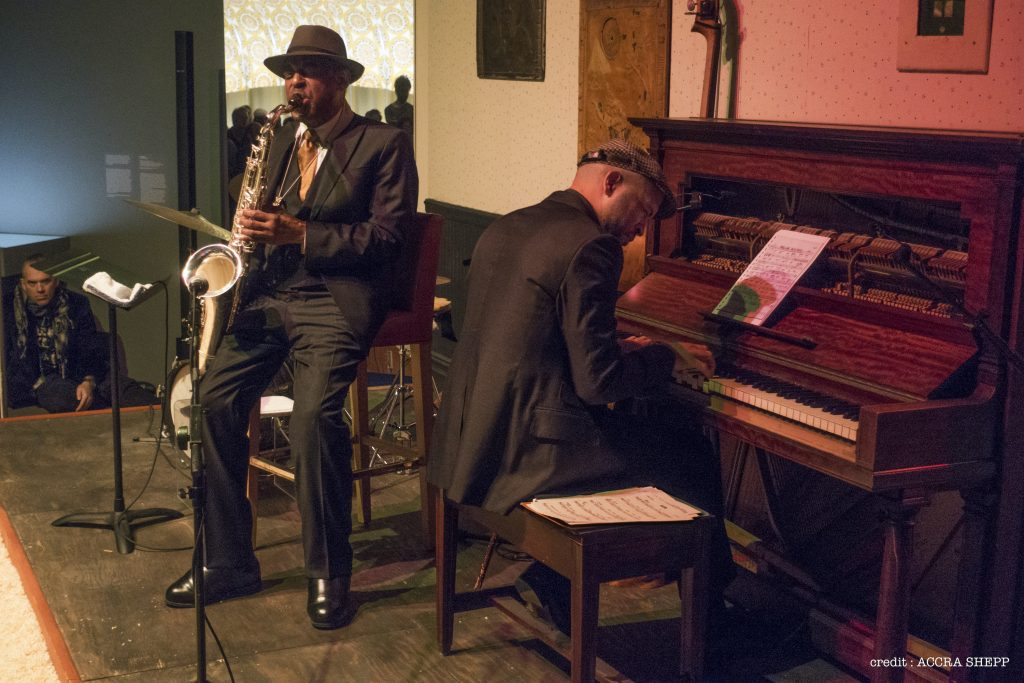Archie Shepp
Let My People Go (Archieball)
Contact Sam McAllister about Archie Shepp
There comes a time when musical expression flows directly from the soul—unimpeded, unfiltered. Unmasked. A point when the modes of expression—the way a person plays and sings, the way he walks and talks and even wears his hat—are all on the same wavelength, all drawing from the same inner spirit. Their music reveals not just who the individual musician might be, but reflects who we all are. Message, music, and identity weave together into one.
Archie Shepp, more than sixty years into a career of supreme dedication, has devoted a lifetime to this idea of spiritual singularity. His vast discography is peppered with moments of deep connection: small ensembles and big bands. Significant studio projects and equally historic live performances, as sideman, leader, and very often, collaborator.
A special thread connects the saxophone/piano duets and makes them standout, Shepp’s meetings with such greats as Horace Parlan, Joachim Kühn, Mal Waldron, Jasper Van’t Hof, and Abdullah Ibrahim (back when he went as Dollar Brand.) Four hands, two instruments, one common statement. Shepp has found a way to consistently excel in this space, as a speaker and as a listener. Much of it has to do with the intensity of the interaction between the two voices, how that space allows the dialogue to stand out. Shepp, in all these instances, has elevated it further: developing these conversations with just the right amount of form and freedom.
Neither Shepp nor Jason Moran are old, and neither are they young—except in spirit and delight. Moran is the more recent arrival, and he’s no new kid on the block. They carry age and experience in their playing as much as a youthful fascination with the songs and forms that define this tradition we call jazz. Let My People Go is the timely title of this collection, but when has that message not been relevant? Now, sadly, as ever.
This is their first recording together, a gathering of duet performances from 2017 and 2018, chronicling a relationship that can sound like the intimate huddling of two old friends: whispered asides, excited exclamations, utterances coinciding with practiced harmony, followed by bursts of laughter. “Ain’t misbehavin’!” cries out one. “Waahhhh!!”, says the other. (That’s really Shepp speaking both parts—but you get the idea.)
Shepp and Moran first met backstage at Belgium’s annual JazzMiddelheim Festival in 2015; I’m proud to say I was there, having interviewed them separately, watching them talk for the first time, feeling the mutual respect that was there from the outset. In five quick years, their friendship has grown, and they have cultivated the chances to perform together: co-headlining or as guests on each other’s gigs, in Europe and the U.S., sometimes with a rhythm section and singers, and as often, just the two of them. The performances herein stem from two encounters: “Motherless Child”, “He Cares”, “Slow Drag”, and “Isfahan” from a gig at Paris’s annual Jazz à la Villette festival in 2017, and the remaining tracks from the 2018 edition of the Enjoy Jazz Festival in Mannheim, Germany.
Let My People Go offers ample evidence of Shepp and Moran’s consanguinity. Both were born in the deep South, raised up in the sound of the blues and black gospel: Shepp in Fort Lauderdale, Florida, and Moran in Houston, Texas. Both fell in love with jazz and other forms of cultural expression, and followed their muses north. Shepp pursued a degree in drama at Goddard College in Vermont, while playing saxophone and writing poetry; Moran, years later, focused on classical and jazz piano at Manhattan School of Music. Both developed an ever-expanding appreciation of pioneers like Duke Ellington, Fats Waller, and Thelonious Monk, with an ear for contemporary styles: Shepp with 1960s Free Jazz, and Moran with Hip Hop of the late ‘80s through today. Tellingly, neither has limited their appreciation or their own modes of expression to just one style or age. Even as they maintain their own individual approaches, their mutual ardor for the African American cultural tradition embraces all leaves, branches, and—especially—its roots.
Love and pride and an abiding sense of message-giving that defies years and categories. That’s the essence of these performances. There’s an old African-American proverb that says, “The spirit will not descend without a song.” Let My People Go is a supreme example of this idea. In this music, one can hear how, when two deeply connected souls meet, the message in the music is clarified and amplified, how its power is increased exponentially. Listen to what they say to each other, and what their music has to say to us.
—Ashley Kahn, October 2020


